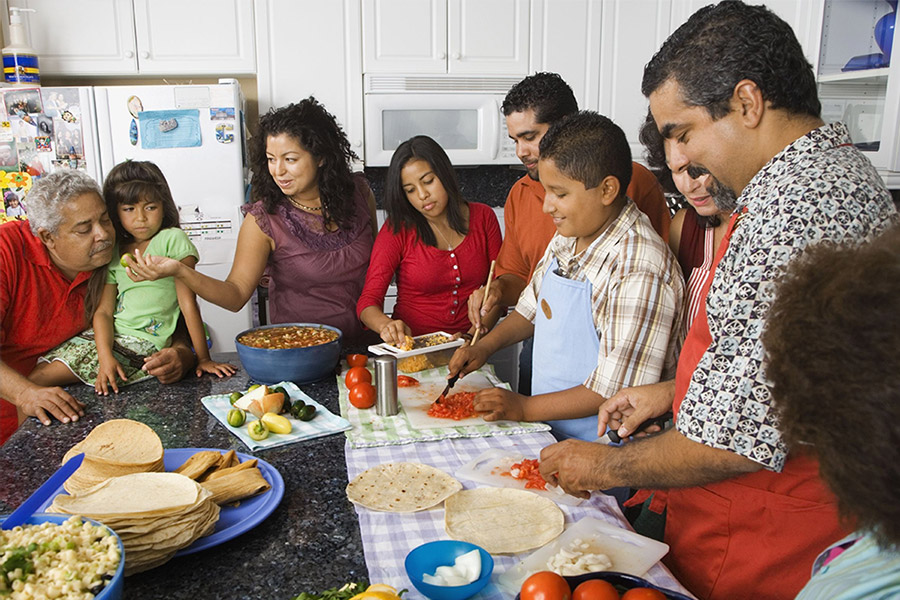

Business Design, Design Strategy
Designing the strategic roadmap of a purpose-driven startup
We helped Yumlish validate and refine their current business strategy while also exploring how to realize their vision at scale.
— CLIENT
Yumlish
— MY ROLE
Design Strategist
— COLLABORATORS
Scott Benbrook, MDM 2020
Carolina Silva, MDes Candidate
Luisa Siliprandi, MDes 2020
Jocelyn Jia, MBA & MDes Candidate
— COURSE DETAILS
Business Model Innovation, with a Design Mindset
Michael Botos
EY Health Sciences & Wellness Strategy Leader
Tiago Baccarelli Justino
EY Wavespace Senior Manager
The Course:
This course focused on the intersection of design-thinking and business strategy. Being taught by two EY management consultants, we addressed how to quickly identify organizational constraints, and find leverage for implementing design strategy to accelerate innovation for our startup clients.
The Challenge:
Yumlish is a purpose-driven startup that believes in the power of healthy living. They are providing Medical Nutrition Therapy to populations that are disproportionately affected by chronic illnesses, such as diabetes. My team assessed their current business strategy and used human-centered design-thinking to identify opportunities to scale their vision of a more equitable health future.
Outcomes:
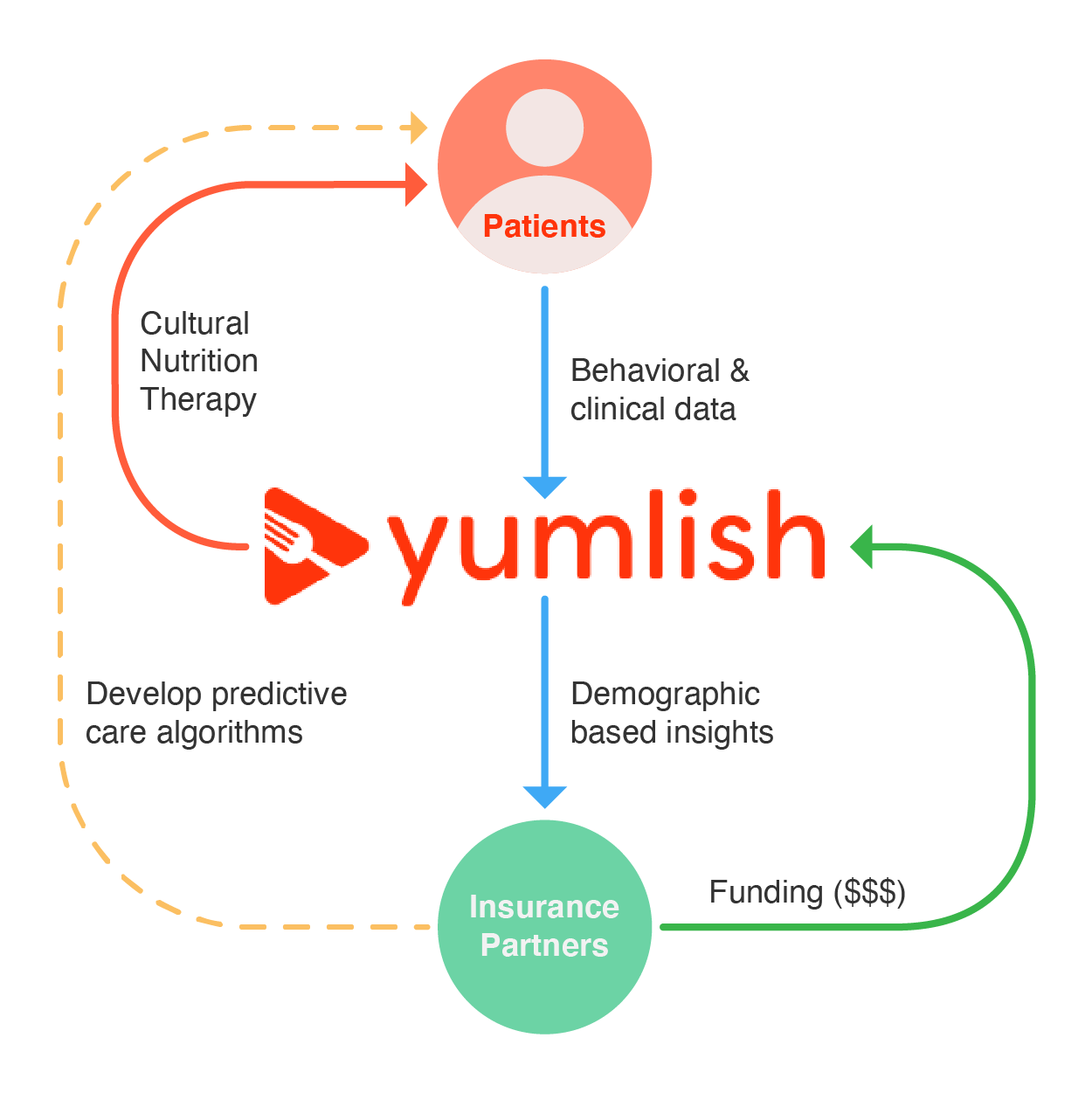
Immediate Business Model
Through analysis and industry research, we designed a win-win partnership strategy that empowers Yumlish to provide Cultural Nutrition Therapy as scale immediately.
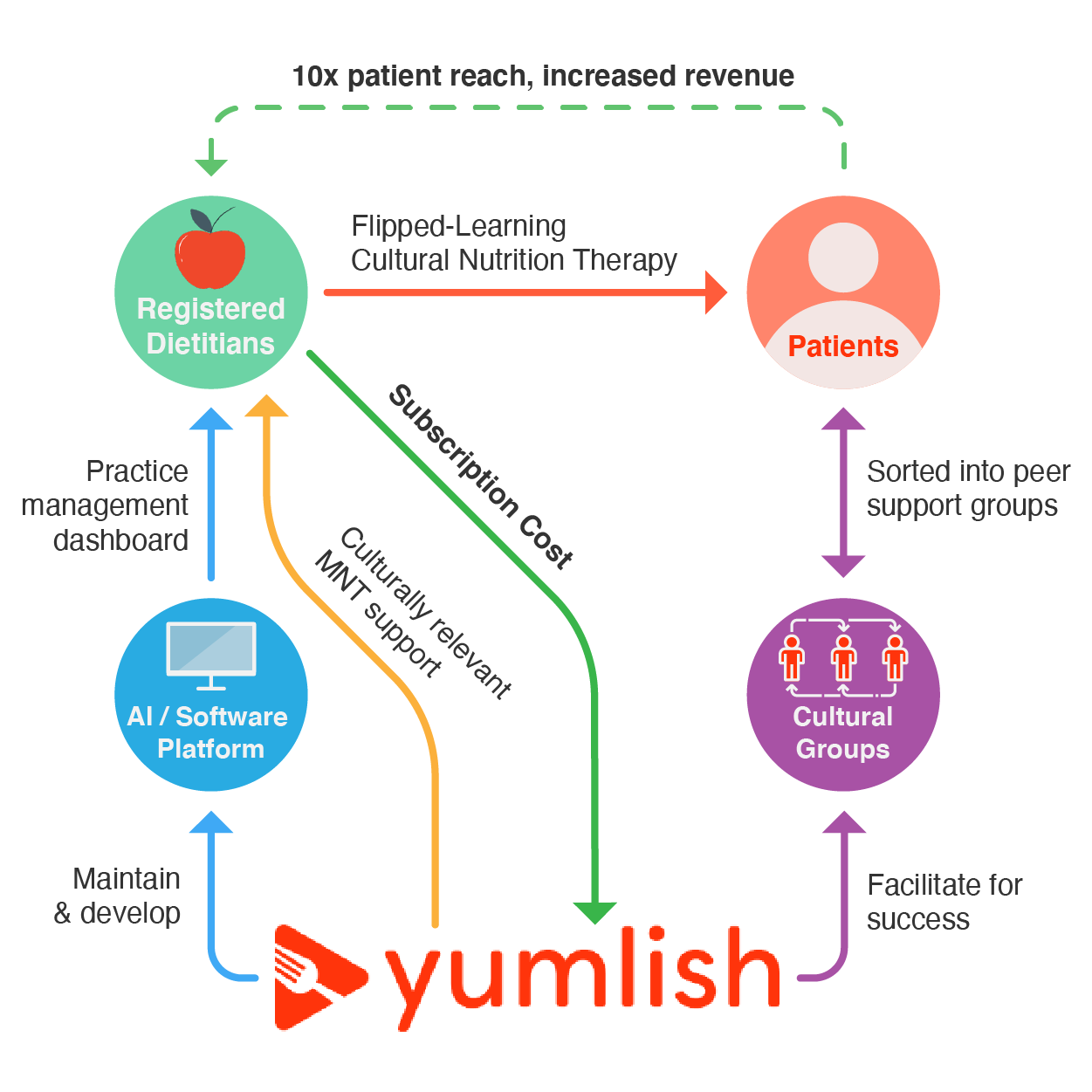
Saas, Future Business Model
By looking at the holistic system, we identified an opportunity to maximize patient reach by leveraging the efficiencies of Yumlish and creating a platform for Registered Dietitians.
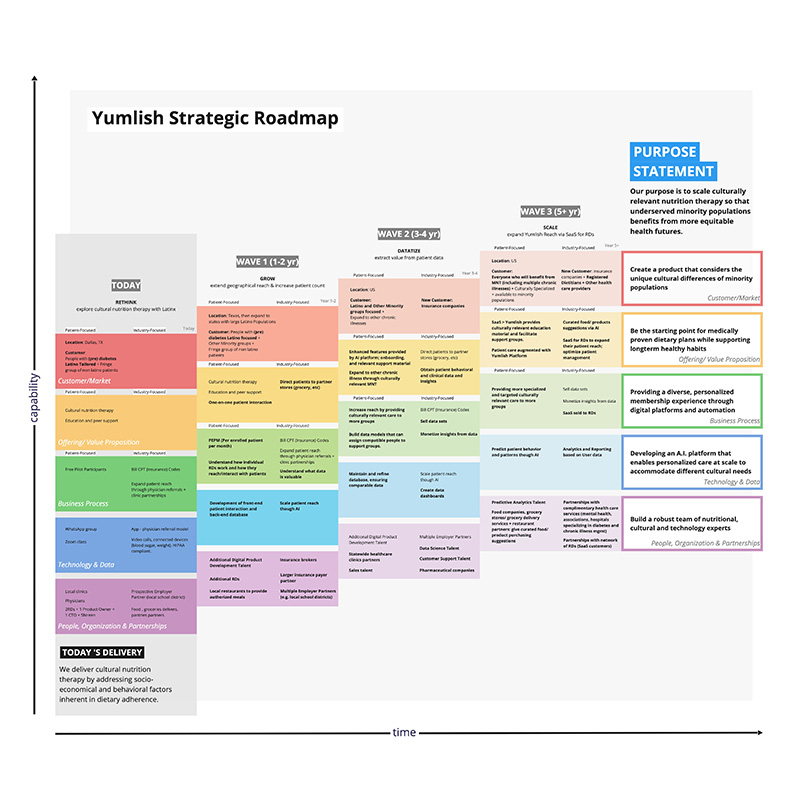
5 Year Roadmap
We collaborated with the client to create a plan for achieving the goal purpose. Our plan considers customer, offering, process, tech/data, talent, and partnerships.

Tackling the problem of diabetes:


Diabetes has a significant effect on the United States.
An estimated 1 in 10 people have diabetes, and 1 in 3 people are pre-diabetic. Many of them are undiagnosed and unaware of their own risks.
The American Diabetes Association estimates the total cost of diabetes at $327 billion, per year. $1 in $7 healthcare spending going towards diabetes and associated complications.
Yumlish Believes Medical Nutrition Therapy can help.
The American Diabetes Association has studied Medical Nutrition Therapy (MNT) provided by a registered dietitian (RD) and believes it can be a key treatment component for diabetes.
"Strong evidence supports the efficacy and cost-effectiveness of nutrition therapy as a component of quality diabetes care, including its integration into the medical management of diabetes"
Minorities are disproportionately impacted by diabetes:
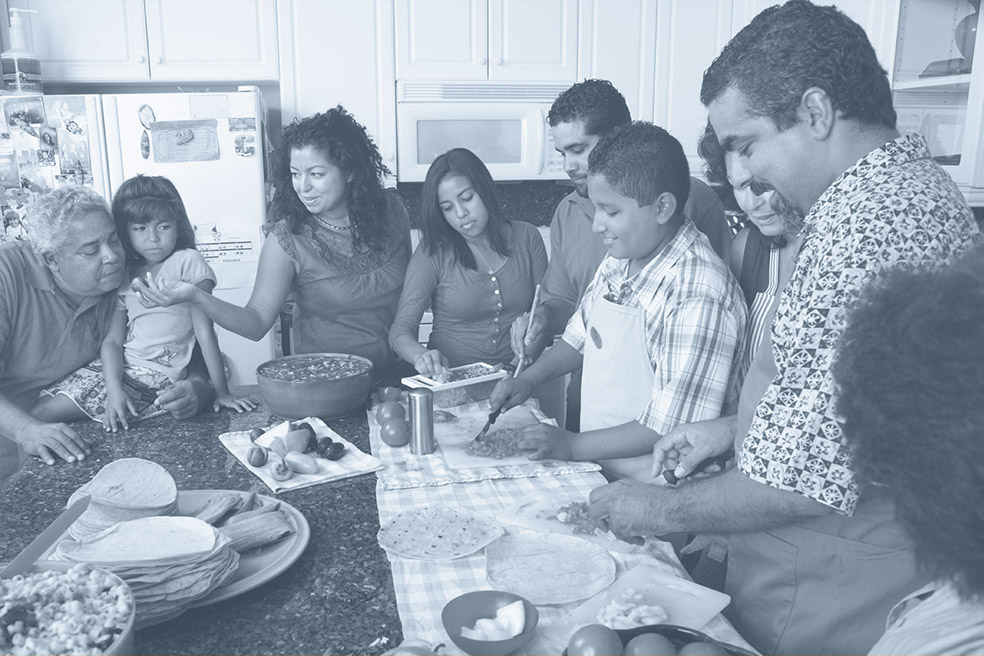
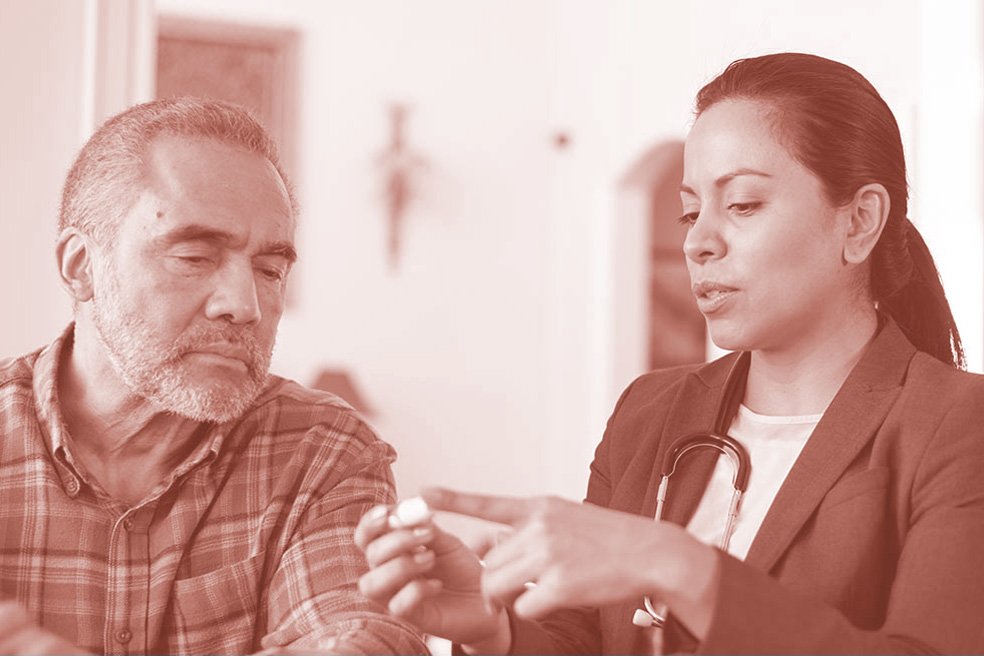
Latinos experience disparities in diabetes.
Due to systemic issues in healthcare and generational cultural norms, the Latino population's diabetes rate is 66% higher than white, non-Hispanic Americans. This disparity drives southern states, like Texas, above national diabetes averages.
Creating equity through cultural relevancy.
Yumlish is tackling this problem by understanding the Latino culture and creating medical nutrition therapy services that are bilingual, culturally relevant, and harnesses the power of peer support groups to create a more equitable health future.
Immersion into Yumlish's current strategy:
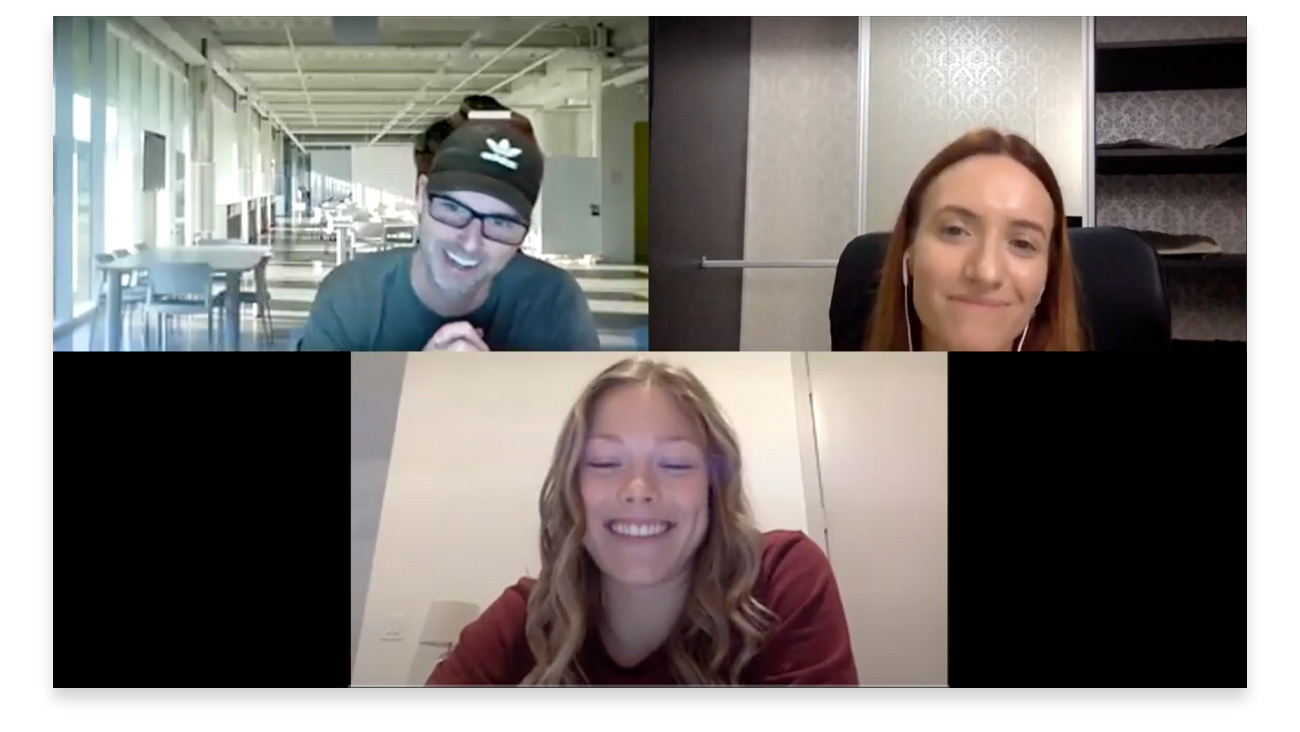
Stakeholder interviews
Our team conducted stakeholder interviews in order to understand every facet of Yumlish.
Interviewing the Founder informed us about the overall vision of the company.
Interviewing the Product Owner taught us about the technologies they are exploring.
Interviewing the Lead Dietitian taught us about the complexities of Medical Nutrition Therapy.
Interviewing the Cultural Dietitian taught us about the power of being culturally relevant.
Interviewing several Patients taught us some of the struggles Latinos with diabetes experience.
Yumlish's current operation:

Group Telehealth Classes
Yumlish is currently providing classes remotely to patients in the Dallas, TX area using group video calls.

Peer Support Chats
Yumlish has found that people motivate each other with an ongoing group chat where they can provide encouragement and ask questions.

Upcoming Partnerships
Yumlish has a series of partnerships in the hopper that will improve their revenue through pay per member per month agreements (PMPM) with employers.
Co-Designing Yumlish's purpose statement:
Based on what we learned about Yumlish, we helped them verbalize thier mission
Our purpose is to scale culturally relevant nutrition therapy so that underserved minority populations benefit from more equitable health futures.
Value-exchange ecosystem map
We mapped out the relationships between Yumlish, current system actors, and possible future players. By mapping the various actors we were able to identify interdependencies and highlight oppurtunities.
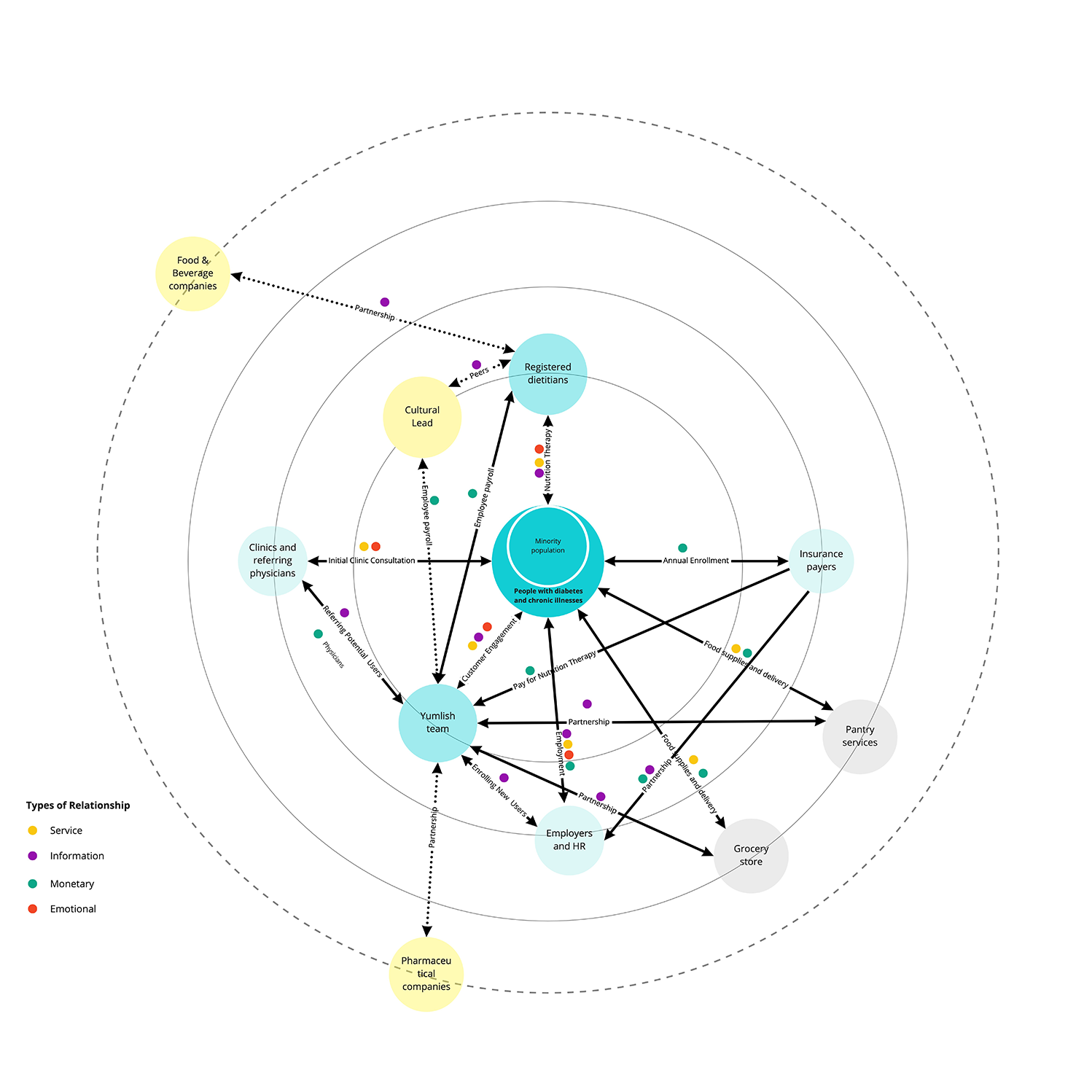
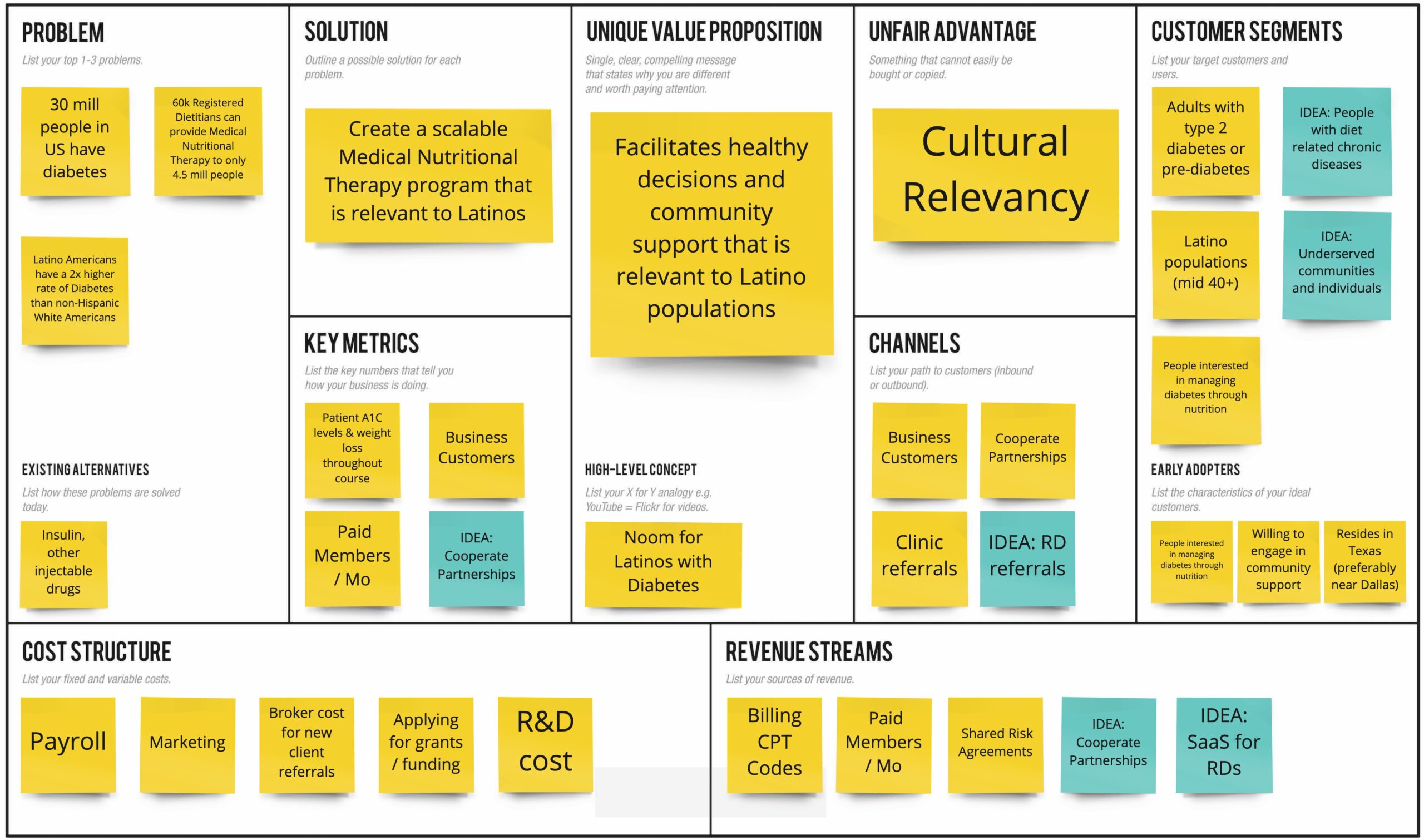
Lean business model canvas
We utilized this framework to identify what Yumlish's biggest advantages were, who their ideal customer is, and how they may create revenue.
Ask 1
of 2
How might we financially sustain Yumlish's purpose-driven efforts, while keeping the service low, to no-cost for the patients?
Collaboratively identifying assumptions
We identified hypotheses that had to be true for Yumlish to succeed.
In a collaborative virtual session with the founder, we sorted each hypothesis based on importance, and if evidence existed to prove them.
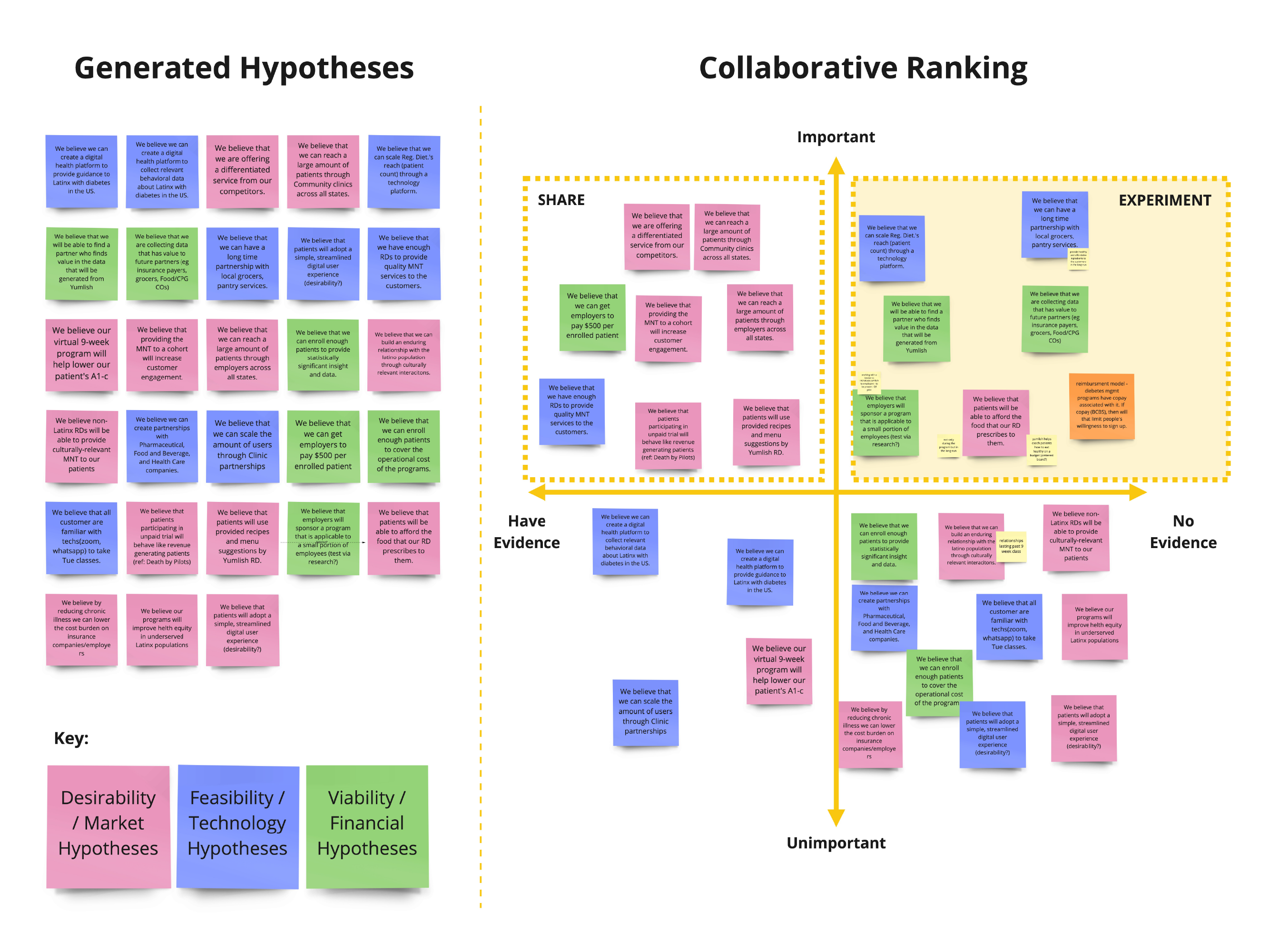
Design experiments to test assumptions
To prove or disprove the ranked hypotheses, we designed small-scale experiments to test the viability, desirability, and feasibility of Yumlish's strategy.
The results of 6 experiments were synthesized and recommendations for improvements were given to Yumlish.
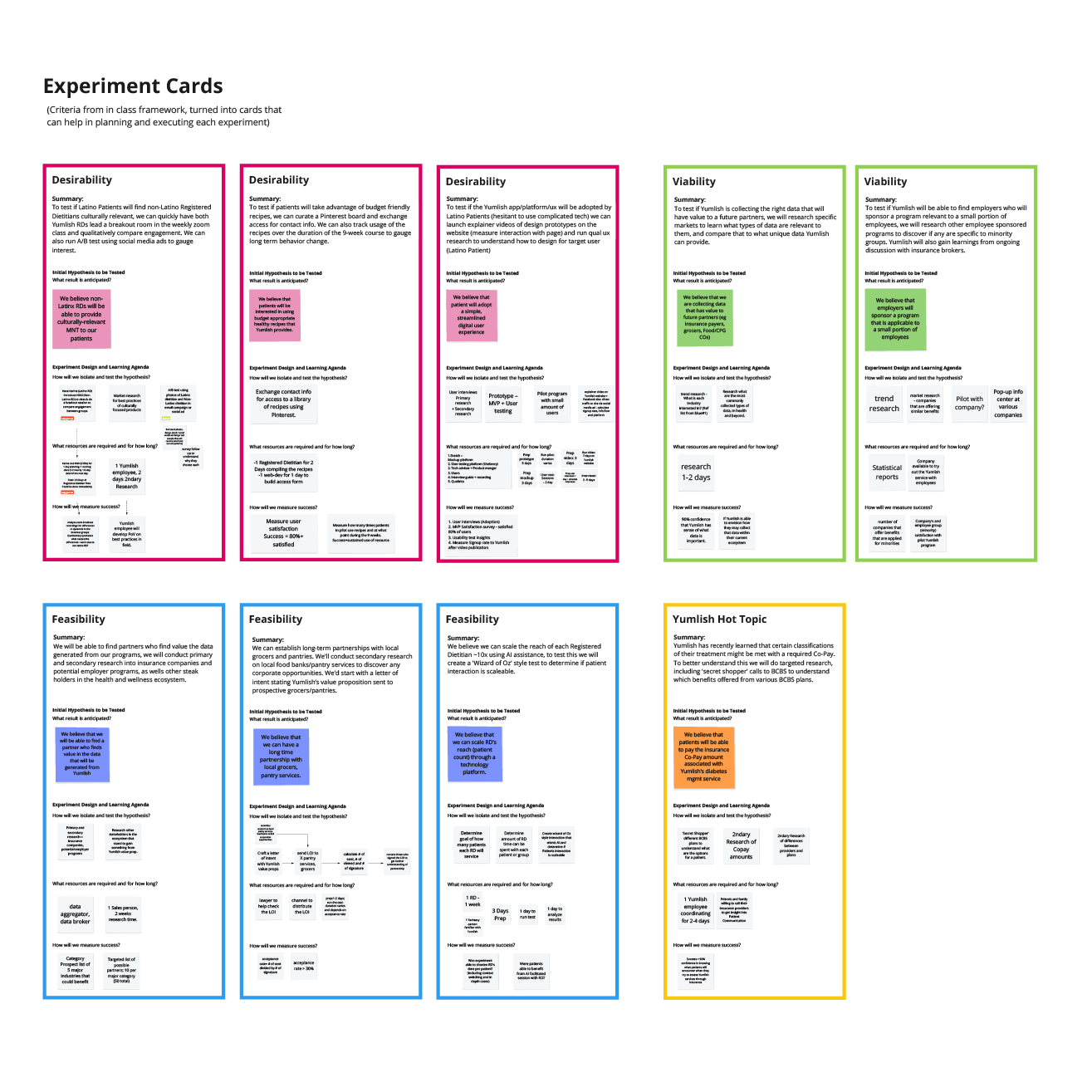

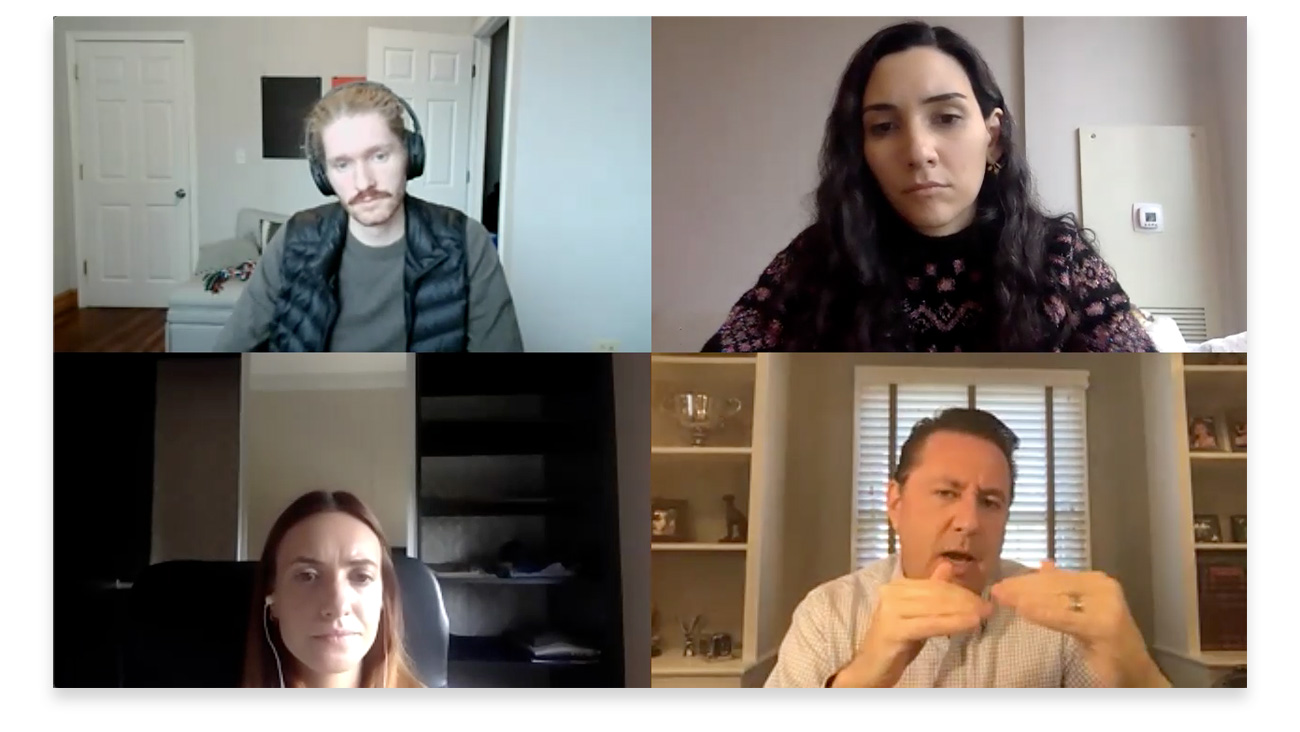
Learning about partnerships with insurance companies
We did special research to learn about the partnership arrangements between health startups and insurance providers. We were able to report to Yumlish what an arrangement might look like, and what steps they could take to pursue a partnership.

A proposed interim business model
Yumlish is currently pursuing subscription-based agreements with employers, but those efforts have proportional outcomes.
With our experiments and research into insurance company partnerships, we constructed a win-win value proposition that enables Yumlish to provide MNT and help develop predictive care algorithms simultaneously.
Ask 2
of 2
How might we scale culturally relevant nutrition therapy to be accessible to as many people as possible?

The forgotten stakeholder
Thanks to your immersion and stakeholder mapping, we were able to identify the ability to scale care not be reaching more patients, but by reaching more registered dietitians.
Not enough patient reach
There are 80,00 Registered Dietitians in the US, each one can service 75 patients through traditional techniques. That's only a potential reach of 6 million, of a 30 million person problem. How might we fix that?
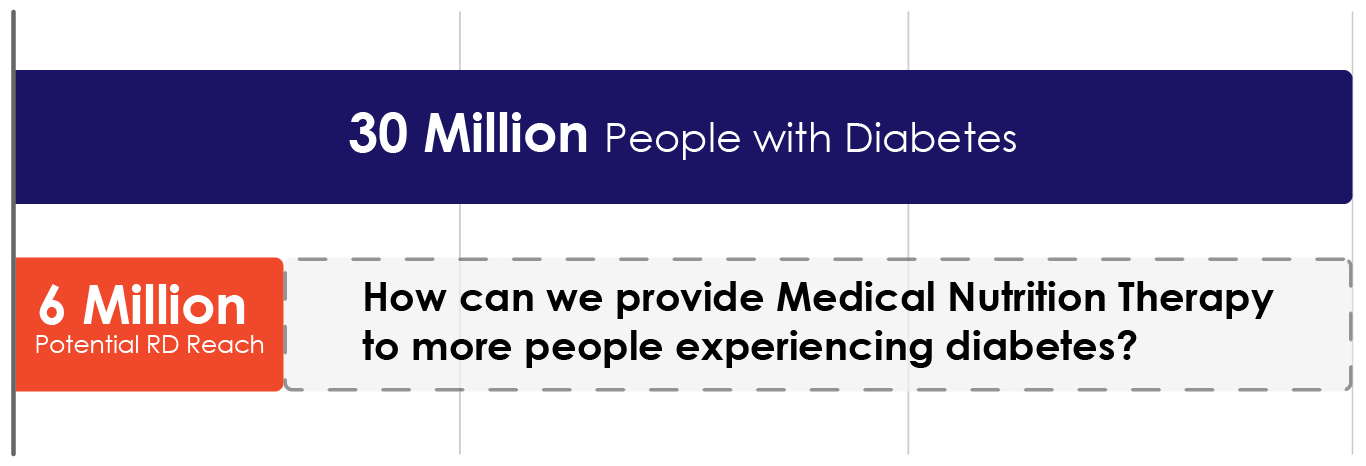
Efficiencies through telemedicine
Yumlish has been proving that each Registered Dietitian can provide care to many more patients by leveraging group sessions and strategically utilizing technology tools. Yumlish has the vision to formalize those tools into resources for both patients and dietitians, further increasing the potential reach for each of their Registered Dietitians.
Through design-thinking and brainstorming, our team recognized the opportunity to scale these tools to more Registered Dietitians as a service, and in turn scale the number of patients positively impacted by culturally relevant Medical Nutrition Therapy.
SaaS approach to Cultural Nutrition Therapy:

Patient Management Software (CRM)
Yumlish can develop software that provides value to dietitians by being a one-stop solution for their typical needs. As well as patient-facing application/

Upside down education model for culturally relevancy
In order to provide the most culturally relevant care, Yumlish can produce videos that cover topics from the different cultural lenses. RDs will then assign topics to patients and they will watch the variation most culturally relevant to them.

Peer support based on commonalities
Accountability is proven to improve the success rate of healthy habit formation. To accomplish this, Yumlish will assign Patient users to support groups based on personalities and cultural backgrounds.
These groups will act as a support network of people in similar situations, and not limited by geography.
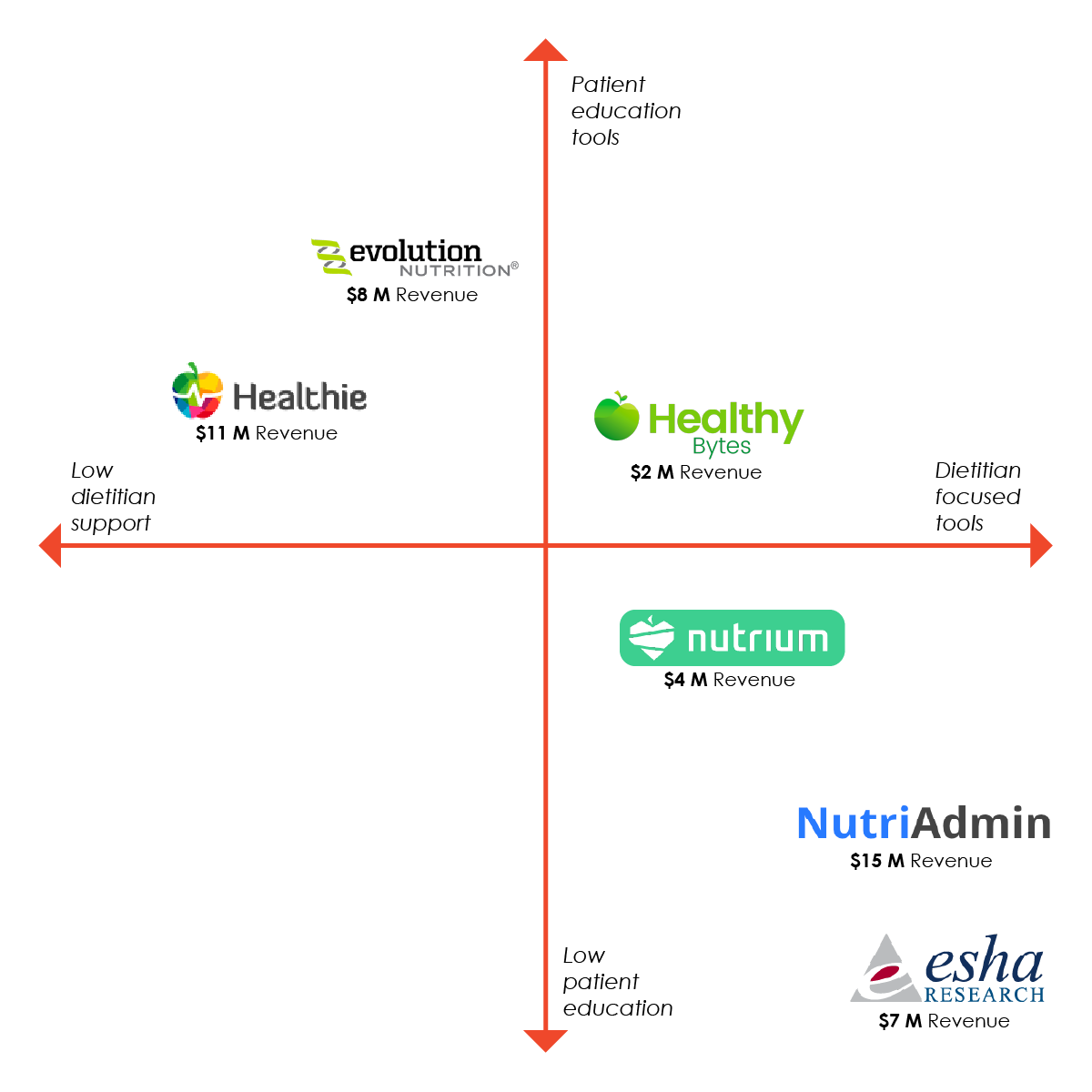
Market opportunity
Researching the current players in Dietitian SaaS, we found that no company was addressing both patient management and education.
Also, Yumlish's unique cultural approach was untouched territory for the market.
Revenues ranged from $2 - $15 Million.
Proposed future business model
We visualized the proposed Software as a Service business model to show how value was generated for Yumlish and how patient reach would be scaled through this approach.
Small amounts of market penetration would result in massive amounts of patients with diabetes and other chronic illnesses receiving cultural nutrition therapy.

How do we get there?
We created a 5-year roadmap to turn our SaaS idea into a feasible strategy.
Approaching the challenge in 3 waves, we identified the goals, value propositions, and resources needed.
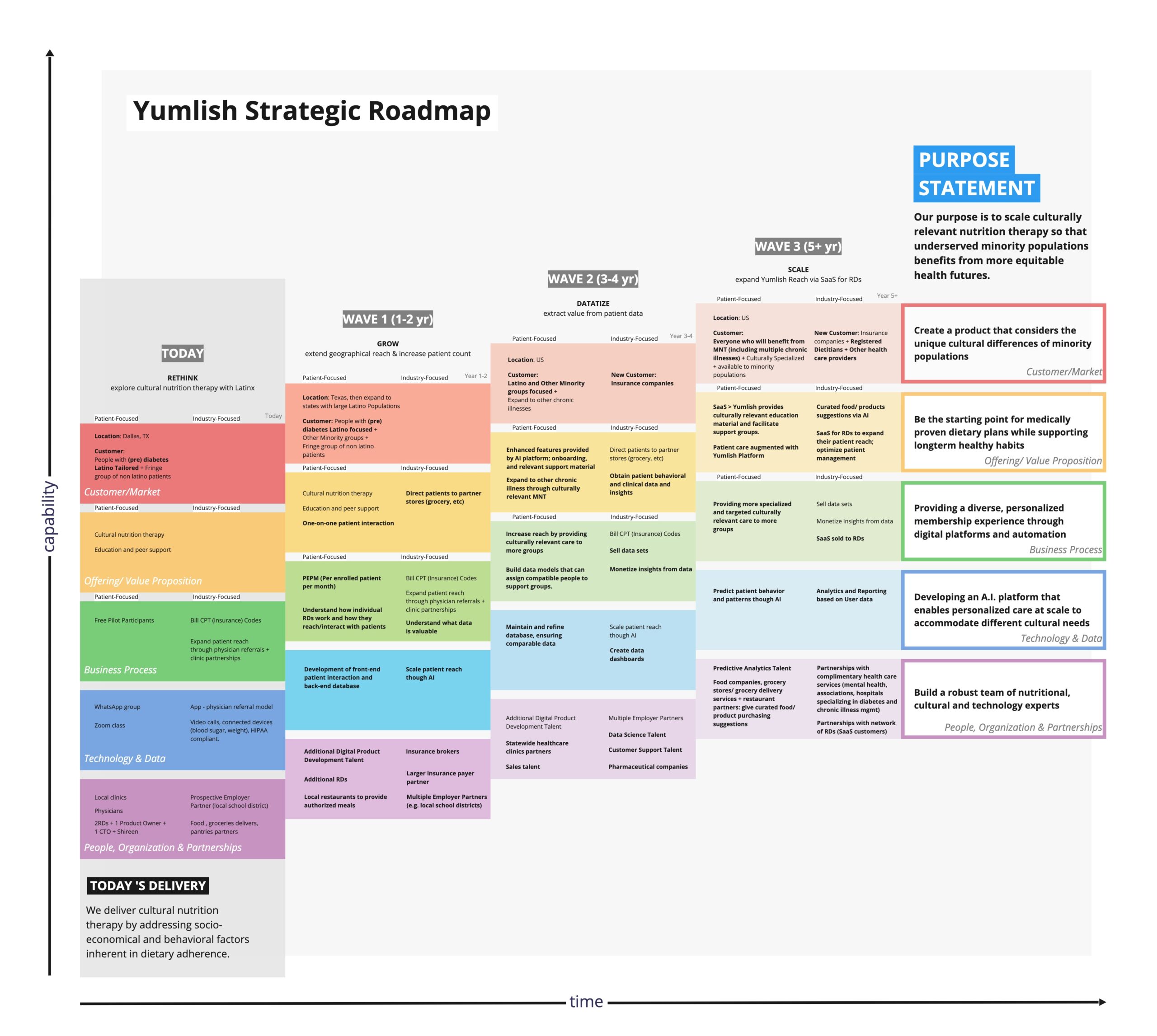
Pitch Deck
As the cumulation of the Business Model Innovation course, our group presented this pitch to Yumlish, EY Instructors, and a panel of other healthcare business experts.
Click the arrows to take a peek!
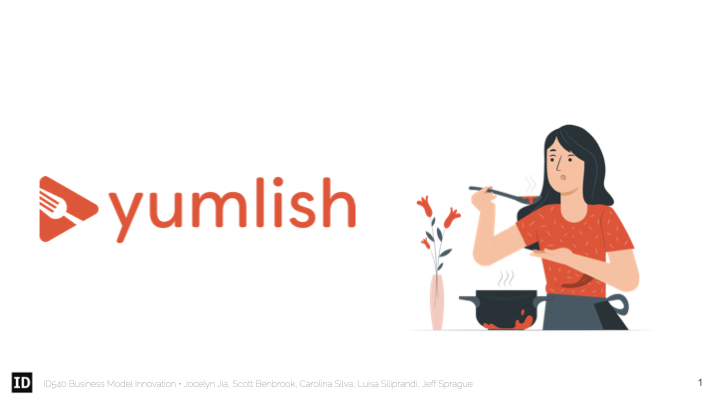
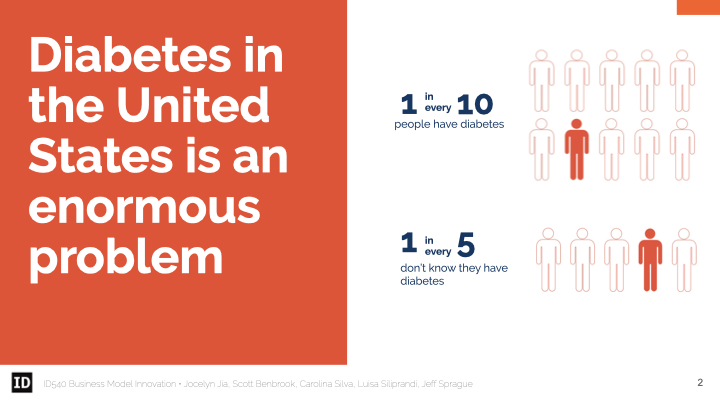
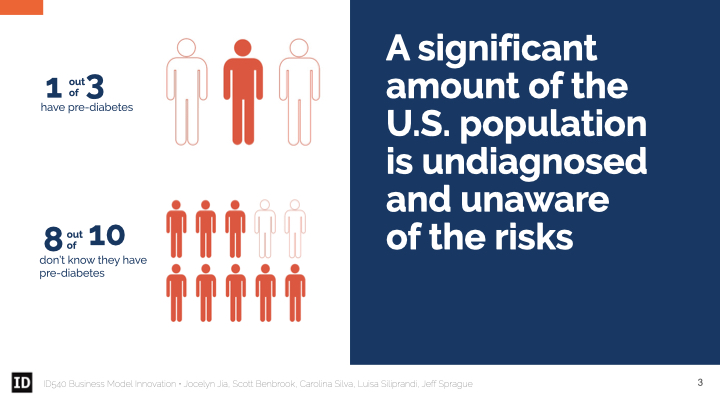
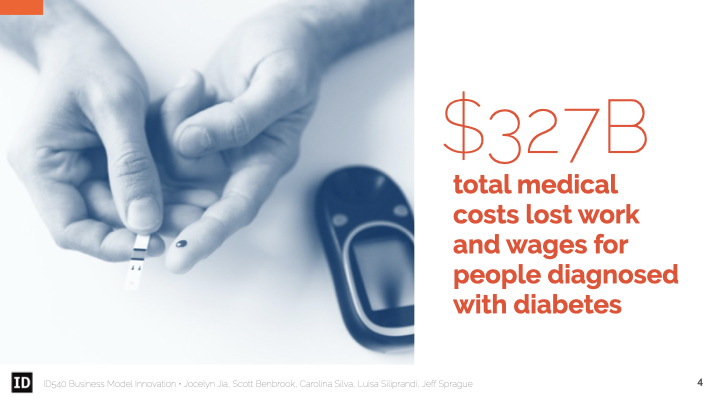
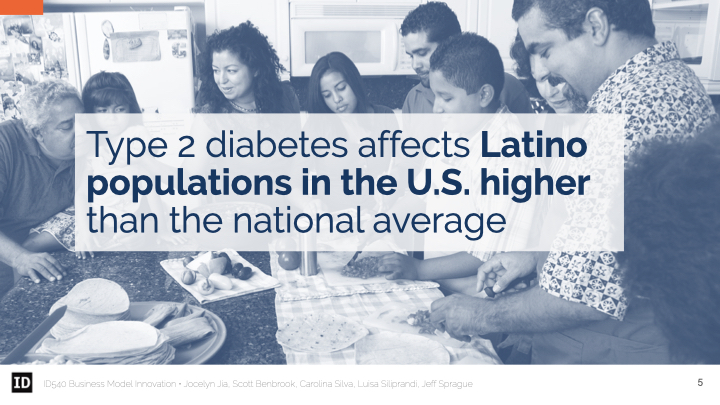
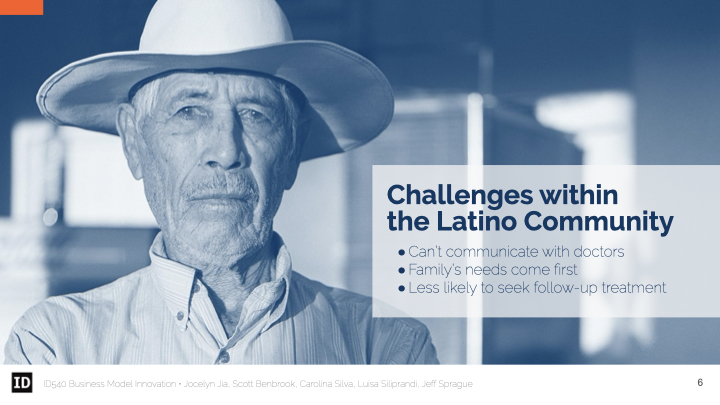
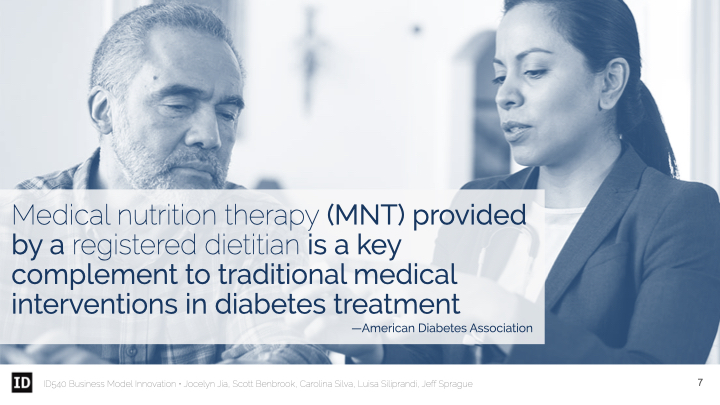
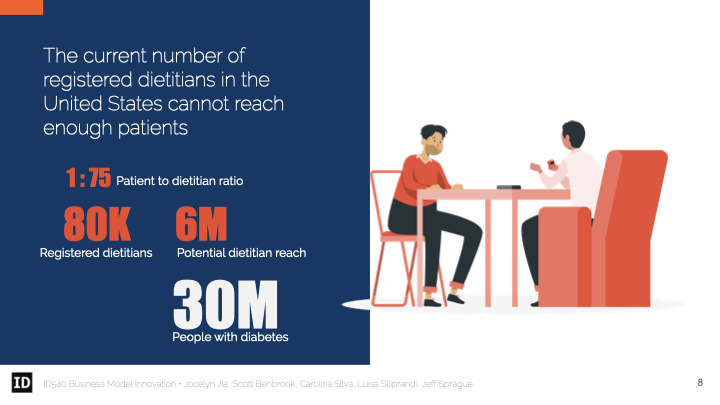
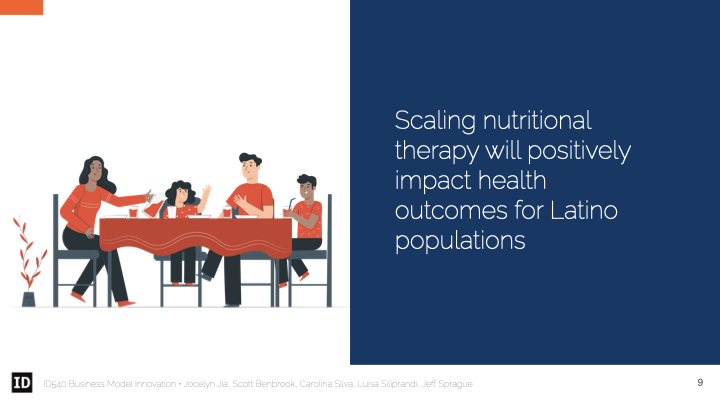
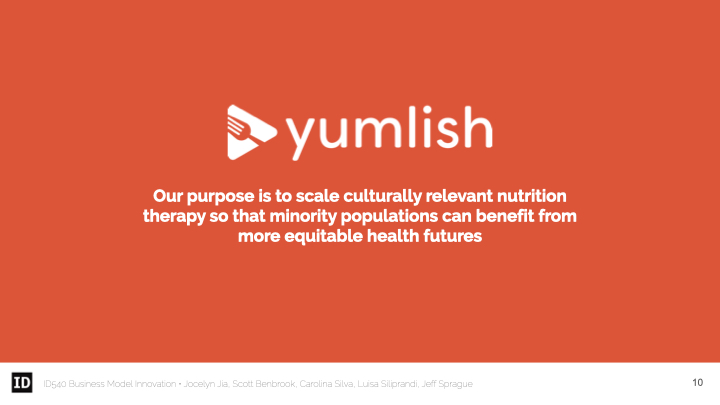
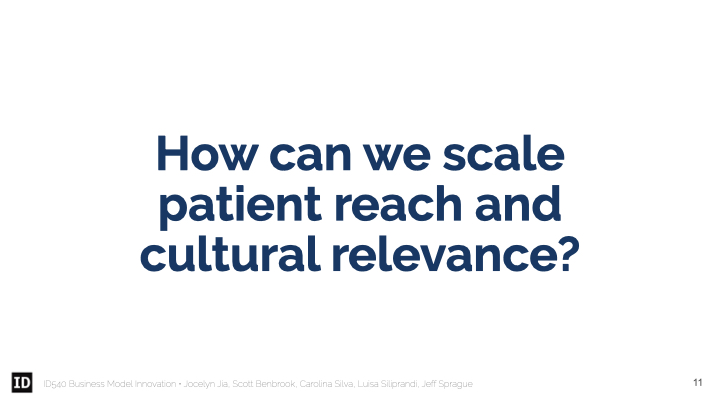
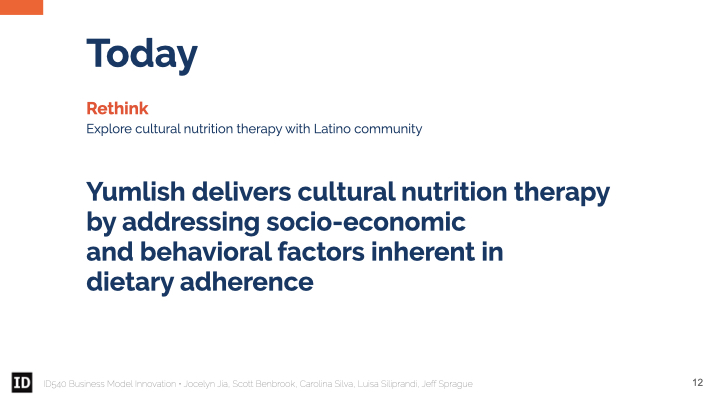
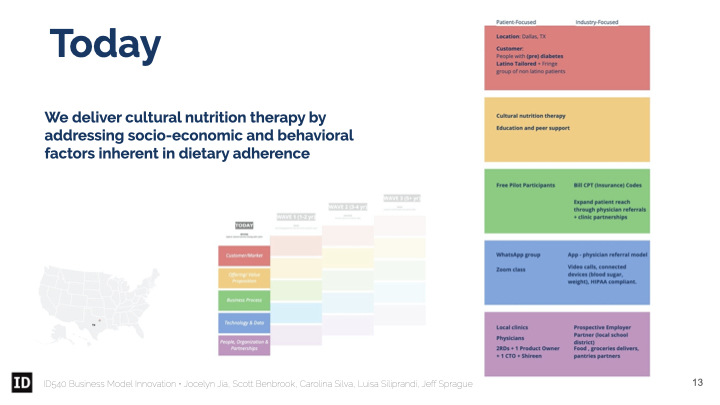
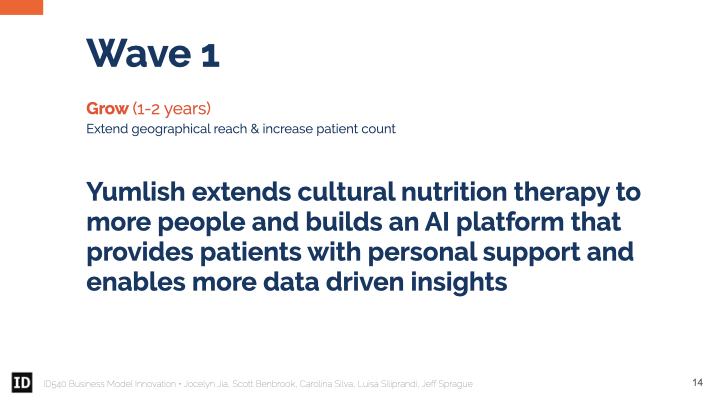
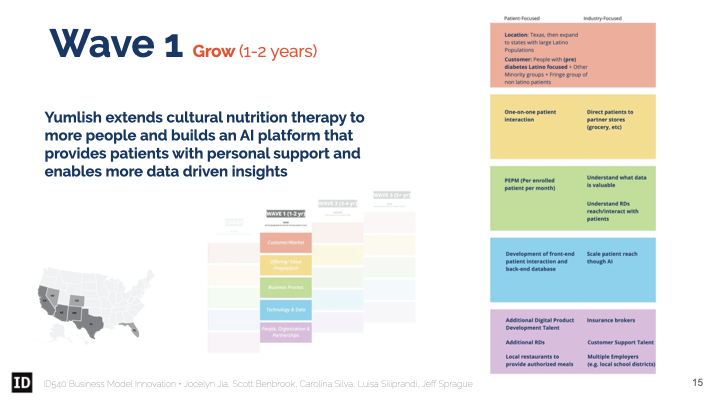
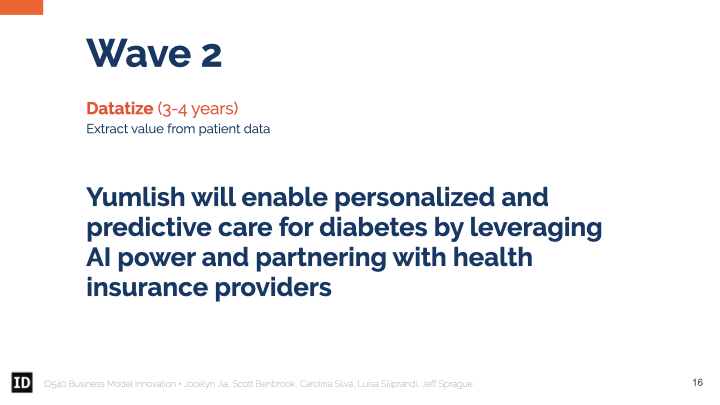
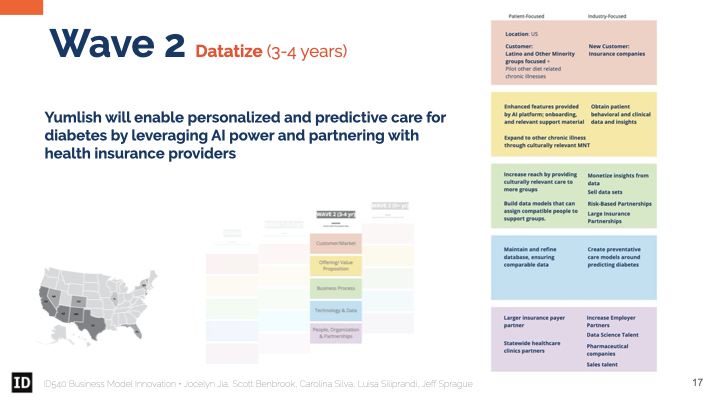
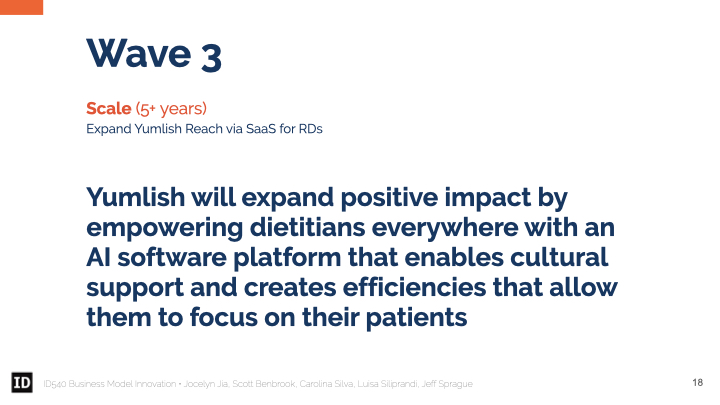
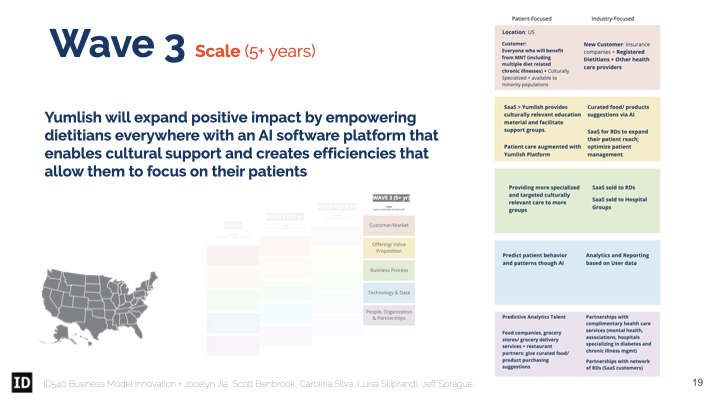
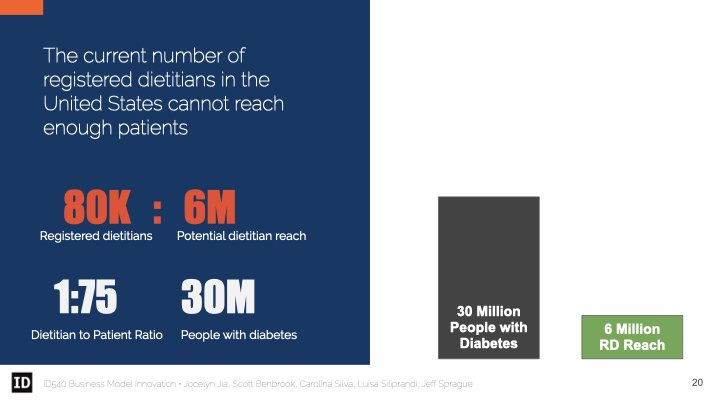
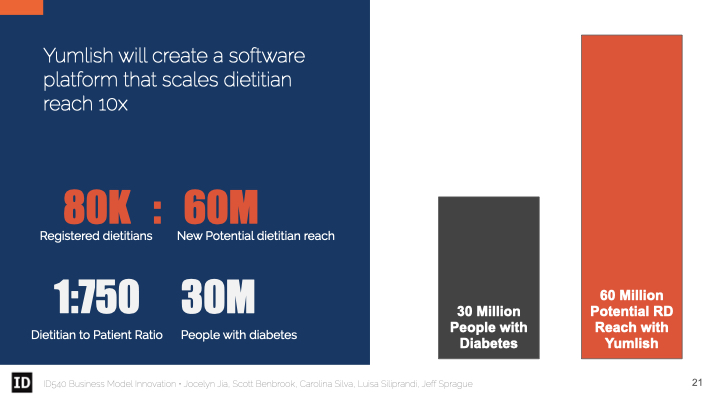
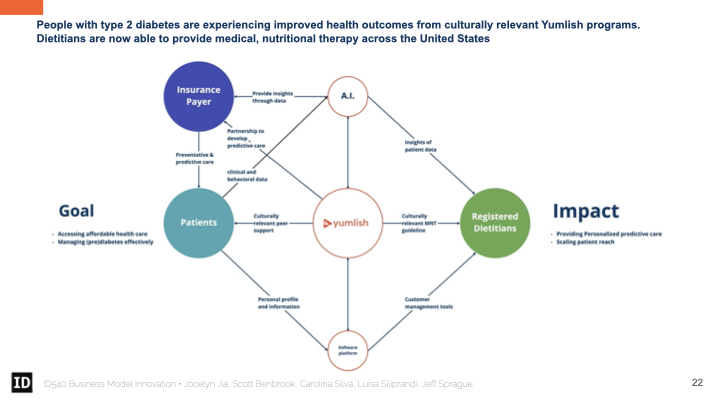
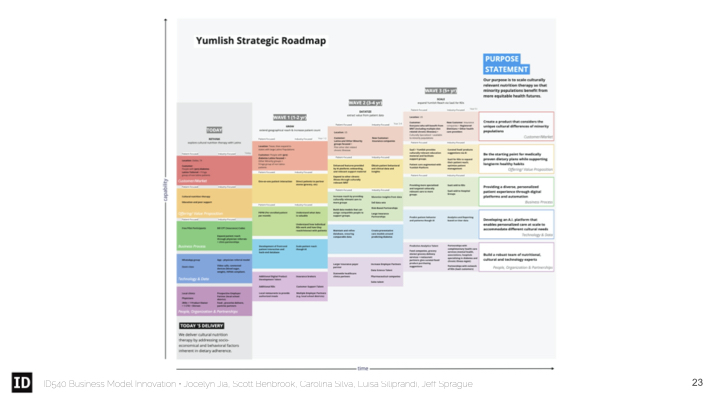
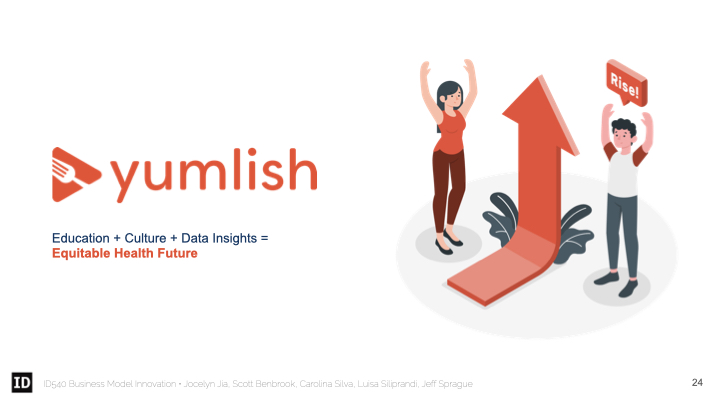
Contact:
Email: JeffSpragueDesign@gmail.com
LinkedIn: Jeff Sprague
Charlotte, NC
Jeff Sprague - Strategic Designer © 2025
